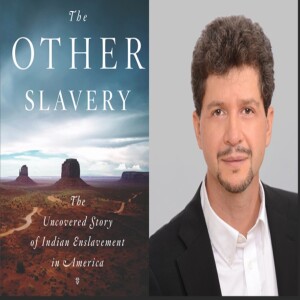
29.9K
Downloads
340
Episodes
The Chills at Will Podcast is a celebration of the visceral beauty of literature. This beauty will be examined through close reads of phrases and lines and passages from fiction and nonfiction that thrills the reader, so much so that he wants to read again and again to replicate that thrill. Each episode will focus on a different theme, such as "The Power of Flashback," "Understatement," "Cats in the Cradle," and "Chills at Will: Origin Story."
The Chills at Will Podcast is a celebration of the visceral beauty of literature. This beauty will be examined through close reads of phrases and lines and passages from fiction and nonfiction that thrills the reader, so much so that he wants to read again and again to replicate that thrill. Each episode will focus on a different theme, such as "The Power of Flashback," "Understatement," "Cats in the Cradle," and "Chills at Will: Origin Story."
Episodes

Tuesday Jun 27, 2023
Tuesday Jun 27, 2023
Episode 189 Notes and Links to Andrés Reséndez’s Work
On Episode 189 of The Chills at Will Podcast, Pete welcomes Andrés Reséndez, and the two discuss, among other things, his early trajectory towards becoming a writer, formative and transformative writers and his work with nonfiction and historical writing, the origins of his book on “the other slavery,” the interplay between disease and warfare and focred labor in decimating Native populations, and the machinations, greed, racism, and laws that guided the enslavement of the indigenous peoples of the Americas.
Andrés Reséndez is a historian at the University of California, Davis. His specialties are Mexican history, early exploration and colonization of the Americas and the Pacific Ocean, and borderlands history.
In 2017, Reséndez won the Bancroft Prize in American History and Diplomacy for The Other Slavery: The Uncovered Story of Indian Enslavement in America. Reséndez grew up in Mexico City, and he is currently a professor in the Department of History at the University of California, Davis.
Buy The Other Slavery: The Uncovered Story of Indian Enslavement in America
Andres Resendez's Wikipedia Page
NPR Review: "Horrors Pile Up Quietly In The Other Slavery"
At about 1:35, Andrés describes his early reading and writing and language experiences
At about 3:25, Andrés references formational writers
At about 4:20, Andrés responds to Pete’s questions about his background with fiction and nonfiction, and he and Pete discuss the “amazing character” of Carvajal
At about 6:05, Andrés lists contemporary “must-reads” like Robert Darnton and Simon Schama
At about 7:30, Pete asks Andrés about connections between the treatment of the indigenous in México and Andrés’ scholarship
At about 10:00, Andrés cites Cabeza de la Vaca’s expedition-a subject of his earlier book-as one of the catalysts for The Other Slavery
At about 13:20, Andrés describes the significance of the book’s title
At about 15:25, Pete and Andrés remark on the “amazing” phenomenon of Spain ruling an empire across the world and the arbitrary nature of the enforcement of the prohibition of indigenous slavery
At about 18:35, Pete lays out a guiding hypothesis of Andrés’ in the book, regarding the central role Indian slavery had on the decimation of many groups
At about 21:00, Andrés connects the cycle that brings together epidemics and slavery
At about 22:10, Pete wonders about the ways in which people have used Andrés’ research since the book’s publication
At about 24:25, Andrés speaks about the use of the term “Indian”
At about 25:40, The two discuss the indigenous peoples of the Caribbean and their unique histories
At about 29:00, Andrés discusses the overwork and slavery and exploitation that decimated the peoples of the Caribbean
At about 30:50, Andrés responds to Pete’s question about white supremacy and social caste and how these ideas permeated the laws and regulations and practices of the conquistadors
At about 36:00, Andrés answers Pete’s questions about whether or not he found any “heroes” in his research
At about 37:15, Andrés explains how the US Civil War led to an uptick in the slavery of the indigenous
At about 39:30, Andrés gives background on how the US Congress played a role in ending indigenous slavery
At about 41:30, Pete and Andrés’ draw historical comparisons to today and
At about 42:30, Pete compliments Andrés’ “humanizing” of the historical figures, and Andrés responds to Pete’s question about how he avoids “moralizing”
At about 44:20, Andrés shares an exciting future project regarding the Philippines and South Asia
You can now subscribe to the podcast on Apple Podcasts, and leave me a five-star review. You can also ask for the podcast by name using Alexa, and find the pod on Stitcher, Spotify, and on Amazon Music. Follow me on IG, where I’m @chillsatwillpodcast, or on Twitter, where I’m @chillsatwillpo1. You can watch this and other episodes on YouTube-watch and subscribe to The Chills at Will Podcast Channel. Please subscribe to both my YouTube Channel and my podcast while you’re checking out this episode.
Sign up now for The Chills at Will Podcast Patreon: it can be found at patreon.com/chillsatwillpodcastpeterriehl
Check out the page that describes the benefits of a Patreon membership, including cool swag and bonus episodes. Thanks in advance for supporting my one-man show, my DIY podcast and my extensive reading, research, editing, and promoting to keep this independent podcast pumping out high-quality content!
NEW MERCH! You can browse and buy here: https://www.etsy.com/shop/ChillsatWillPodcast
This is a passion project of mine, a DIY operation, and I’d love for your help in promoting what I’m convinced is a unique and spirited look at an often-ignored art form.
The intro song for The Chills at Will Podcast is “Wind Down” (Instrumental Version), and the other song played on this episode was “Hoops” (Instrumental)” by Matt Weidauer, and both songs are used through ArchesAudio.com.
Please tune in for Episode 190 with Ellen Birkett Morris. She is an award-winning, multi-genre writer, teacher, and editor based in Louisville, Kentucky. She is also the 2015 winner of the Bevel Summers Prize for her story “May Apples” and won the Betty Gabehart Prize for Fiction.
The episode will air on July 5.

No comments yet. Be the first to say something!